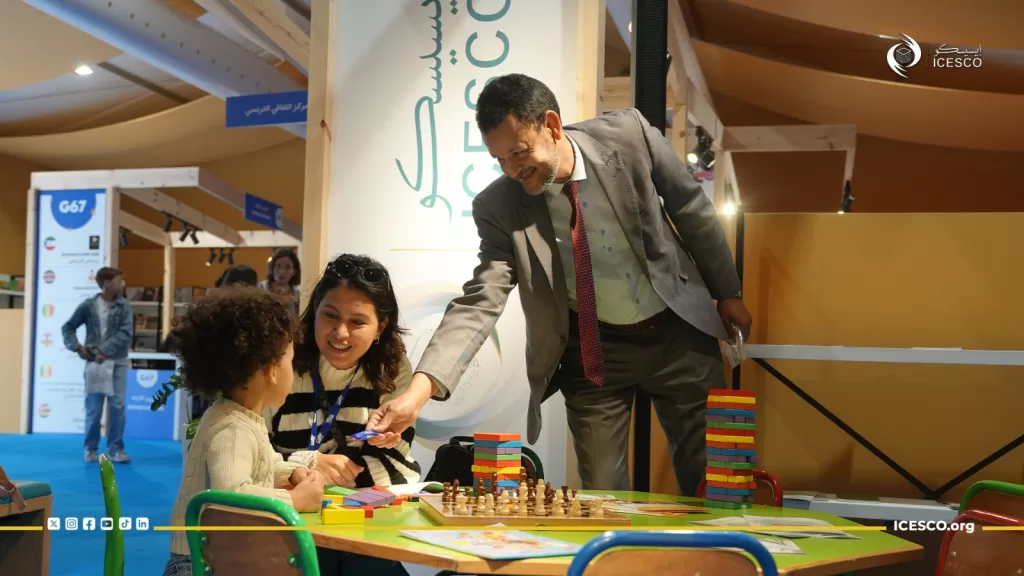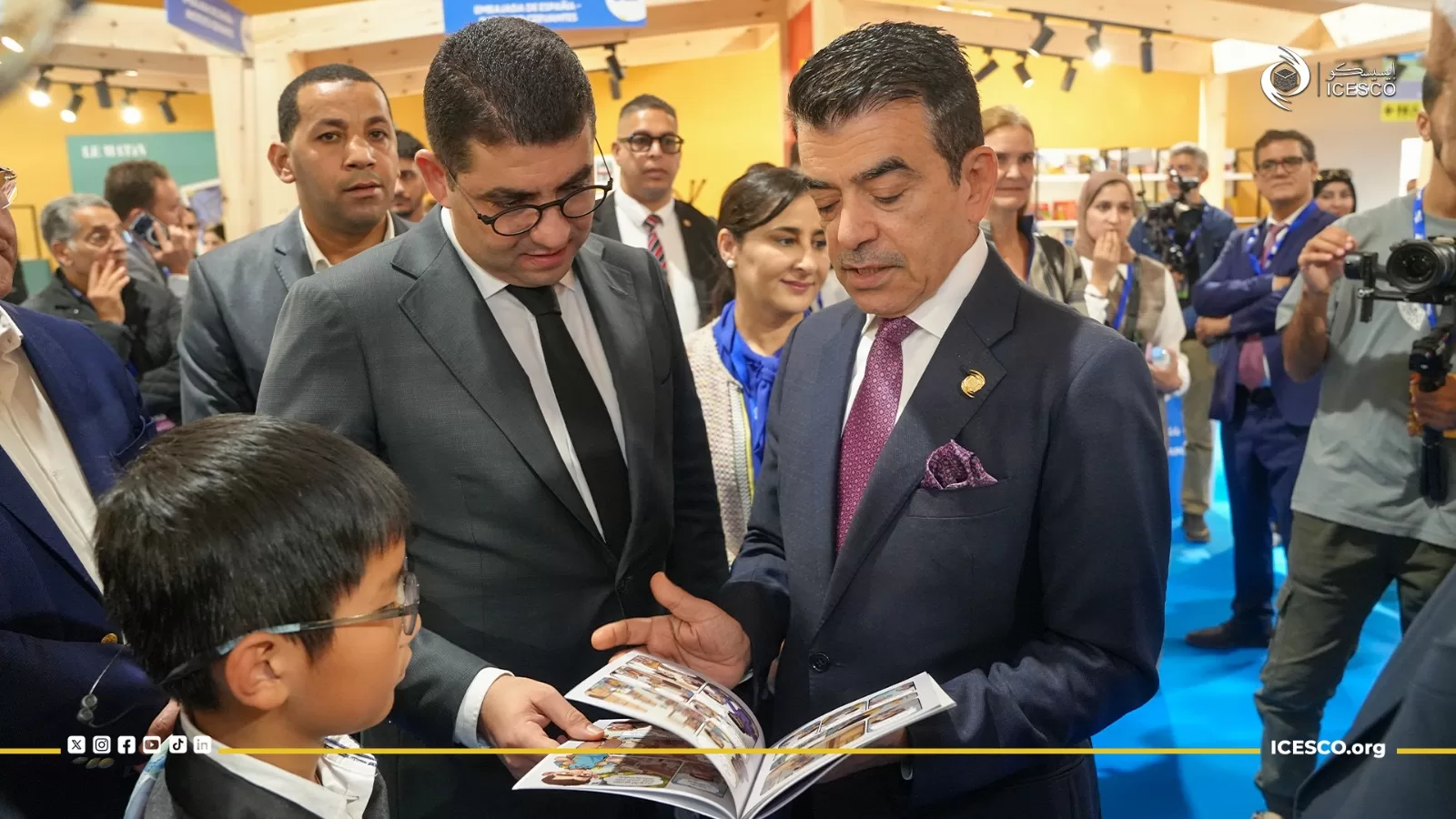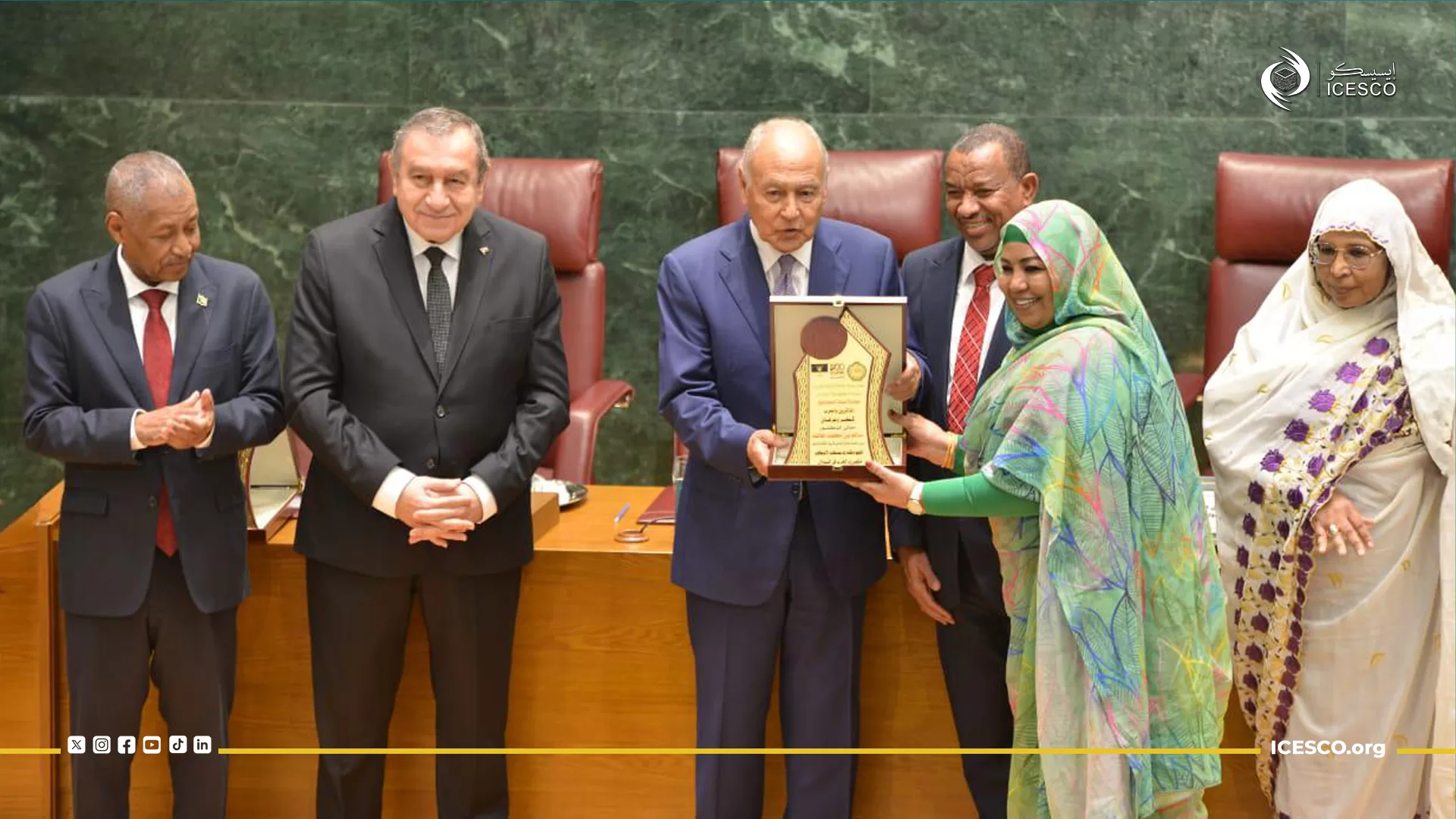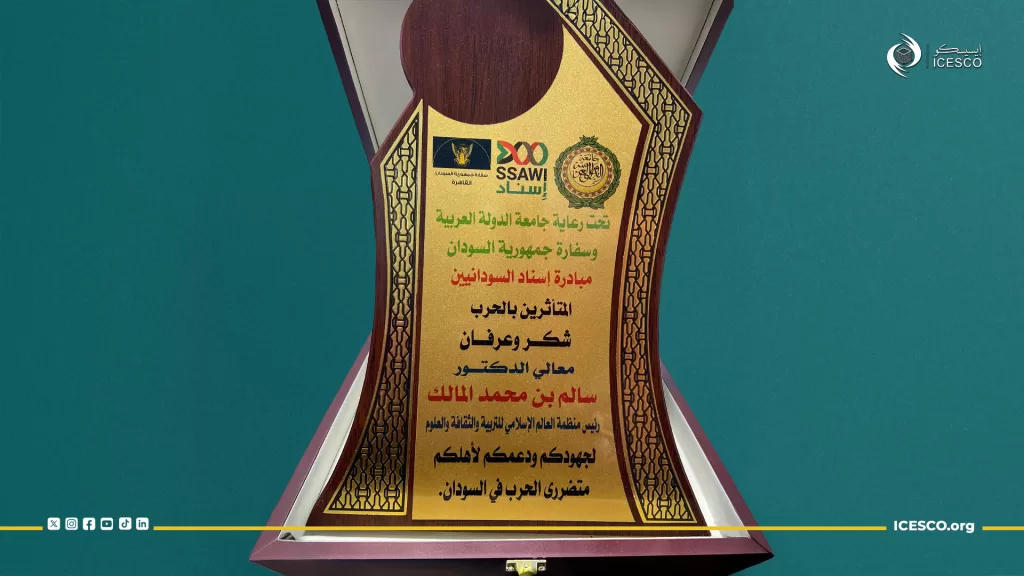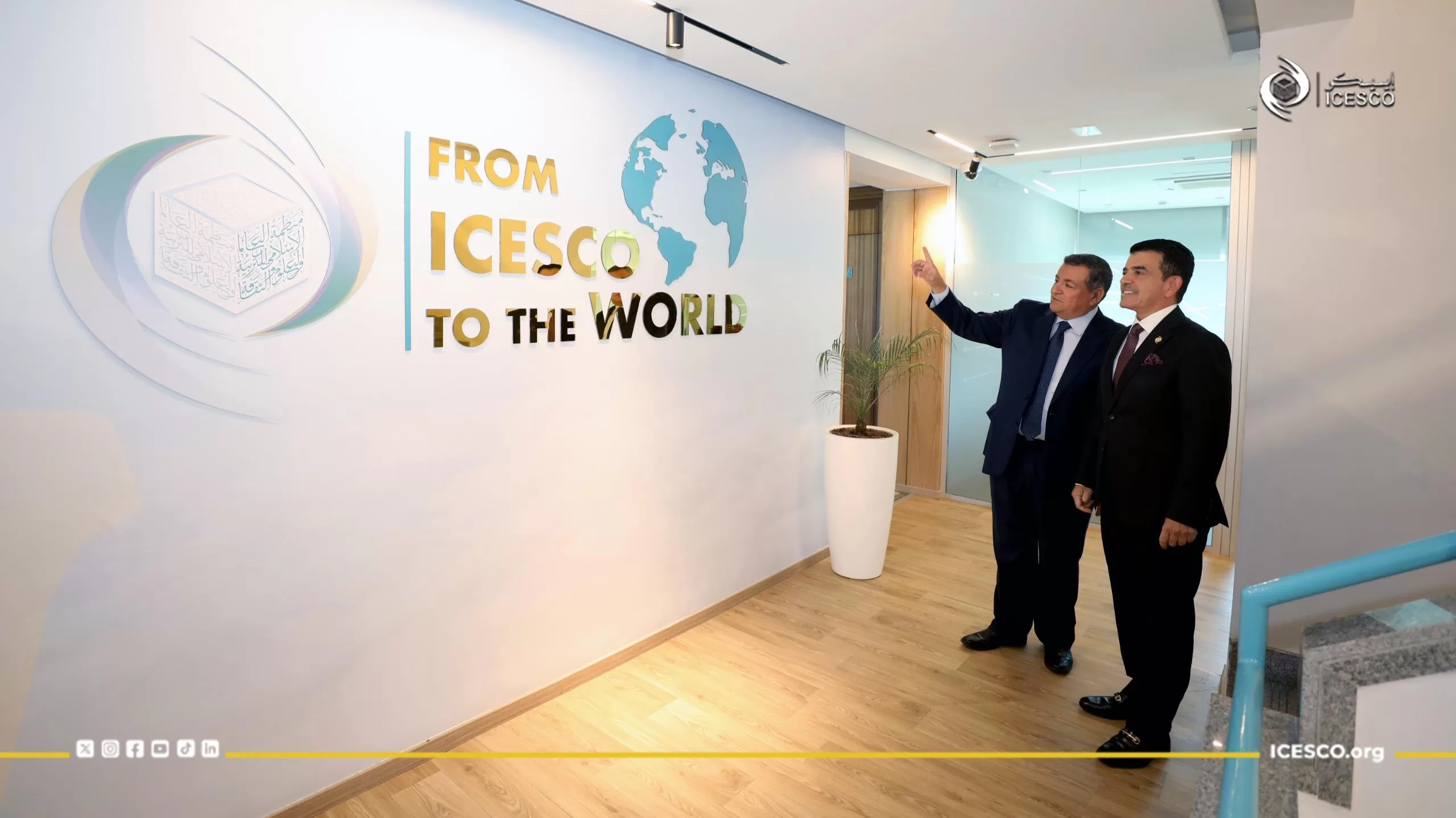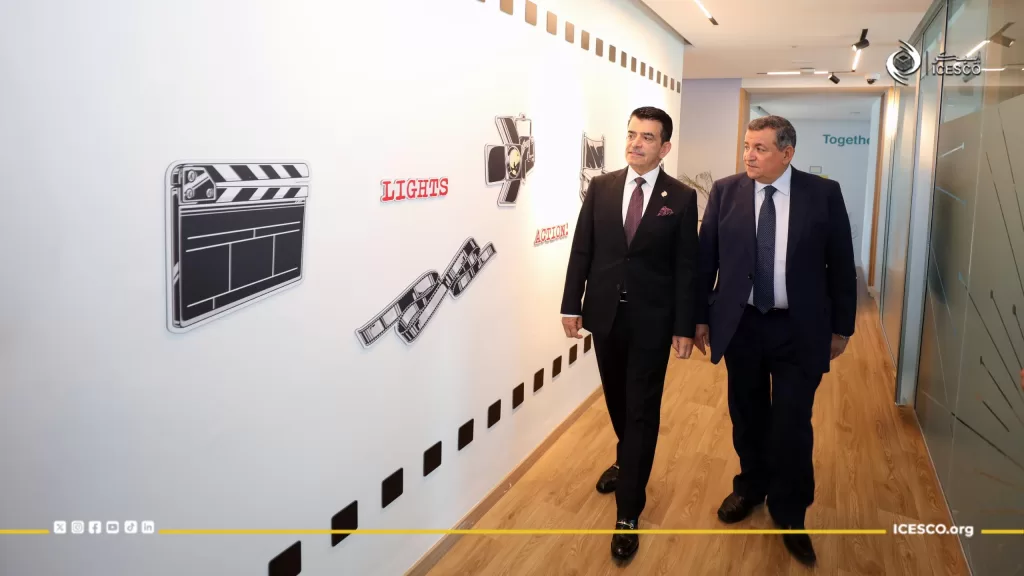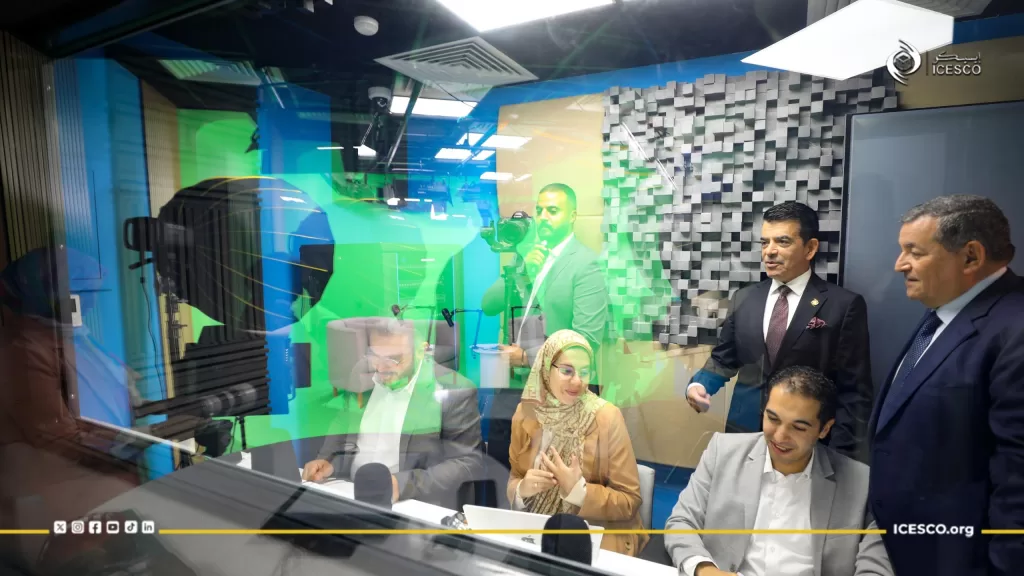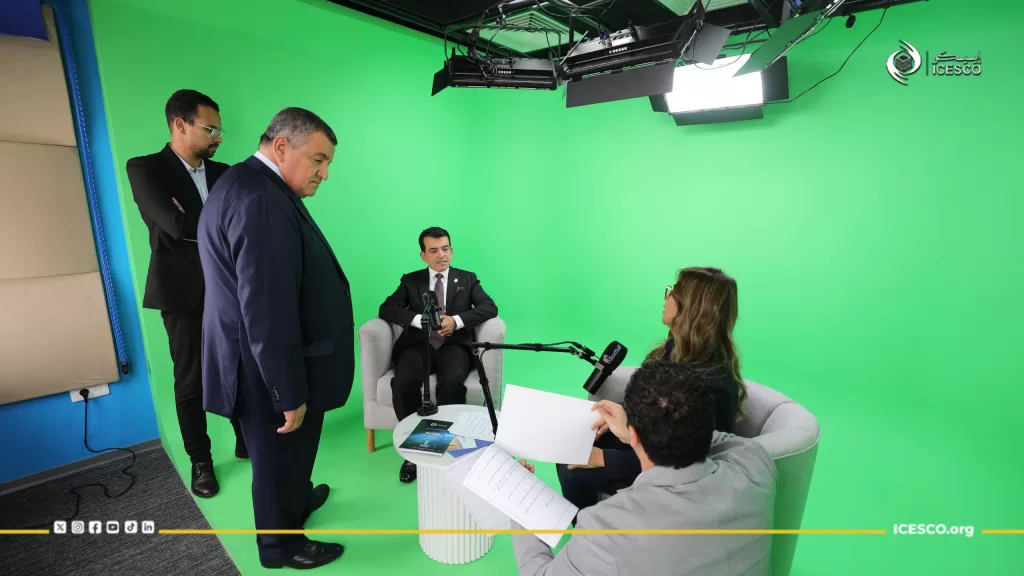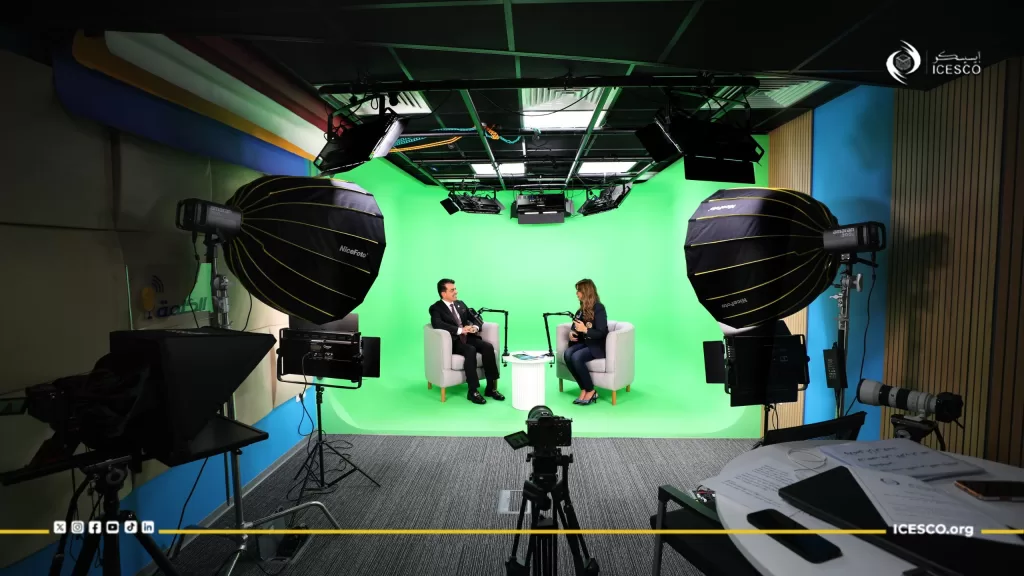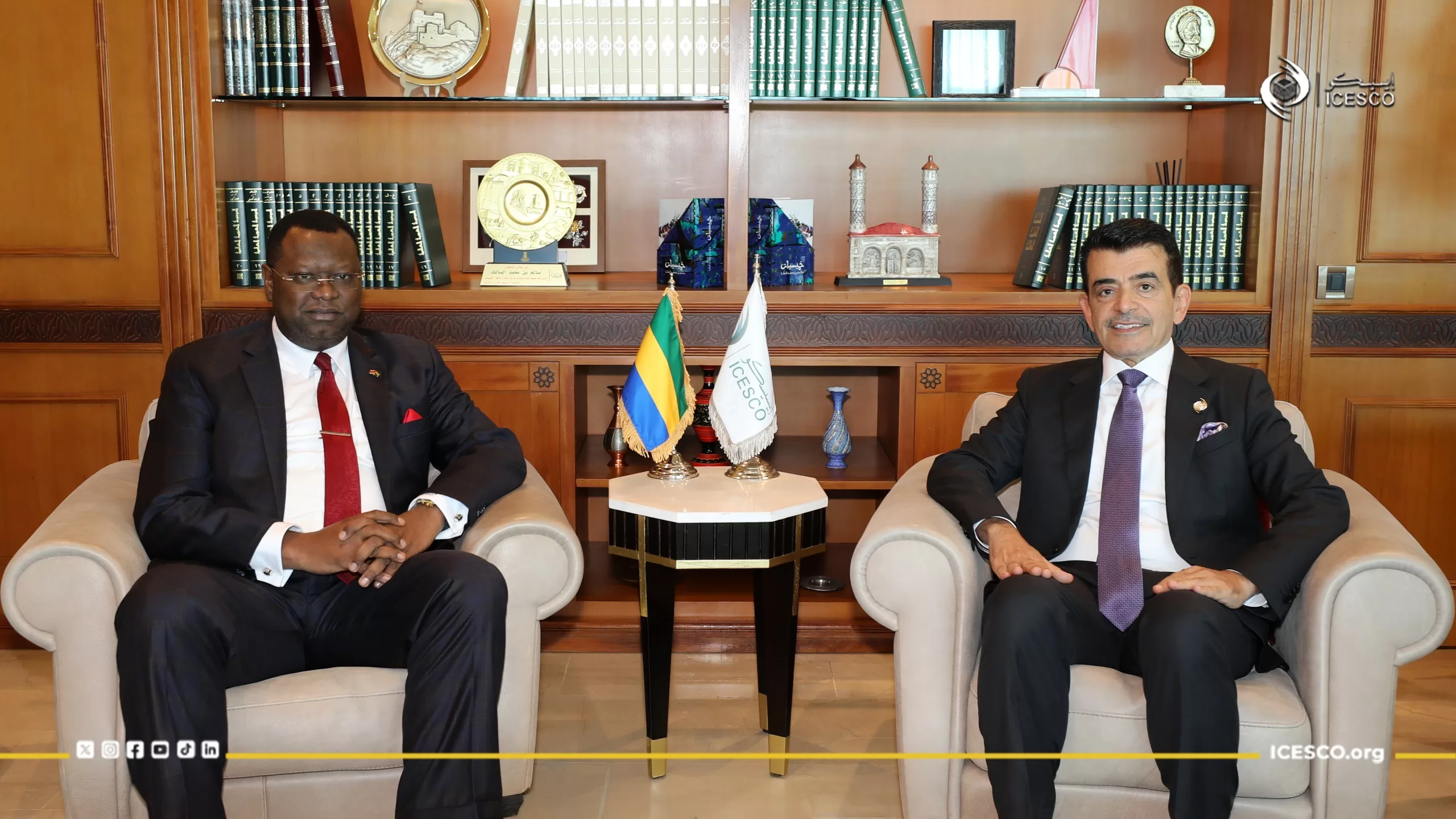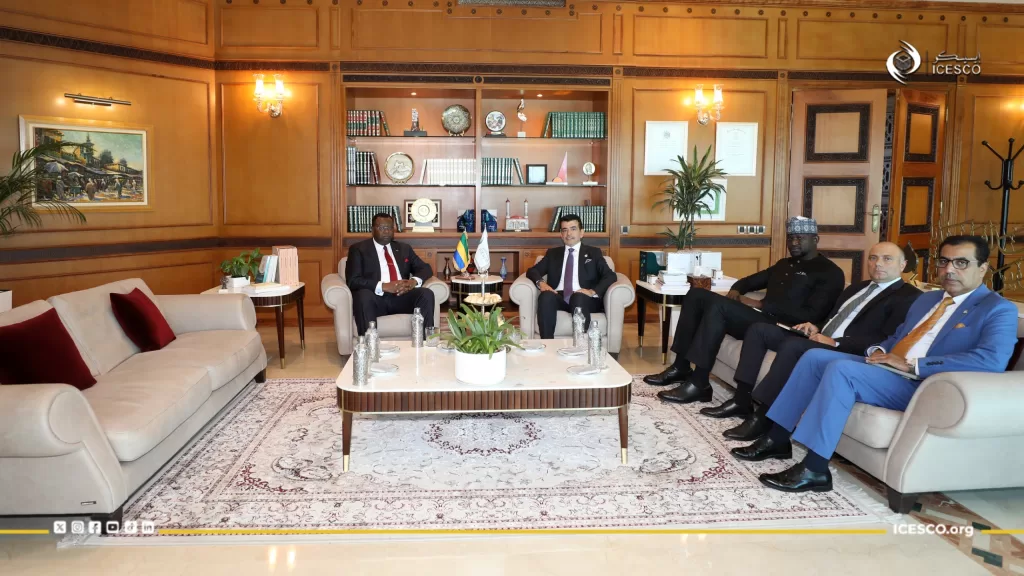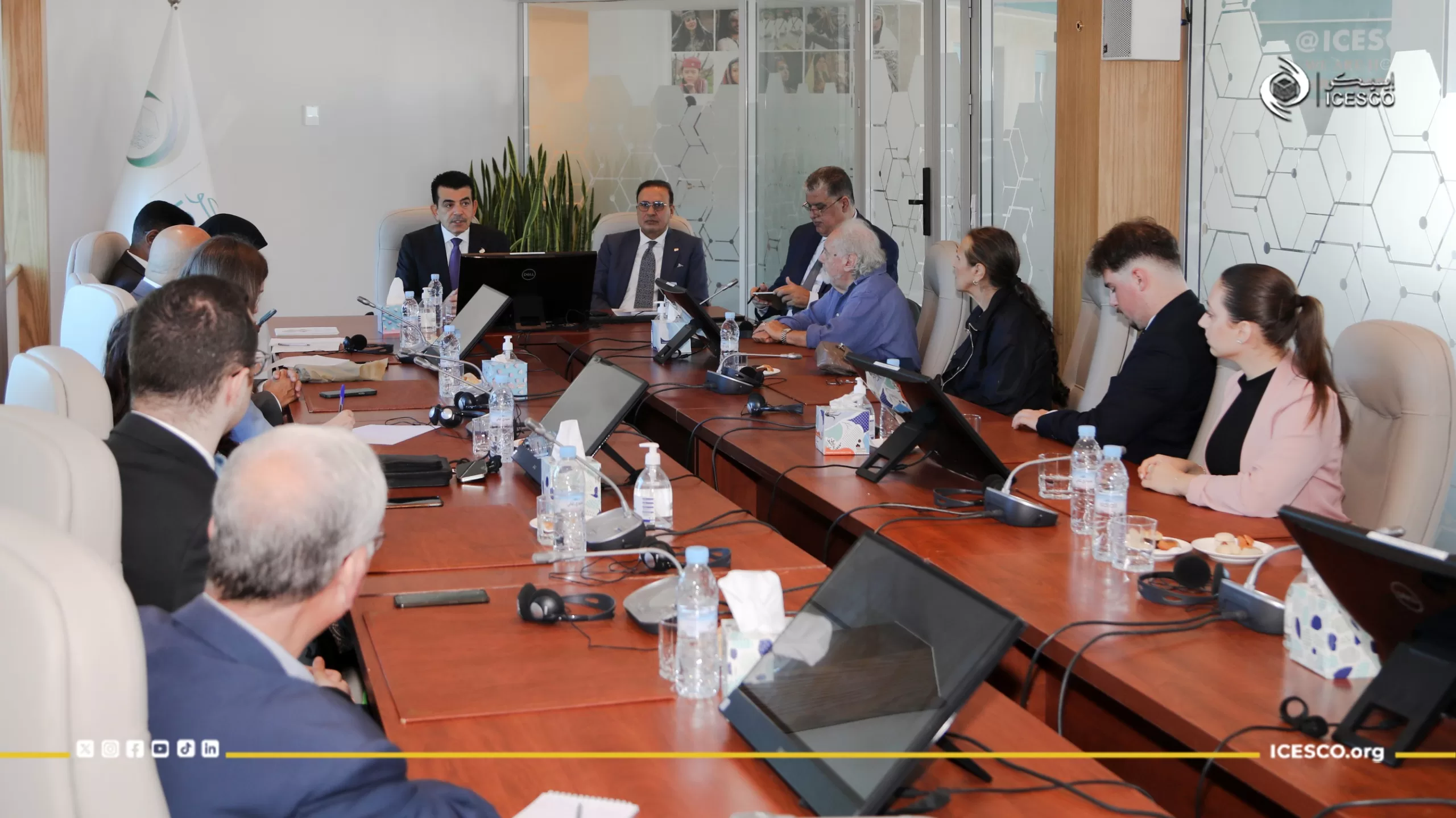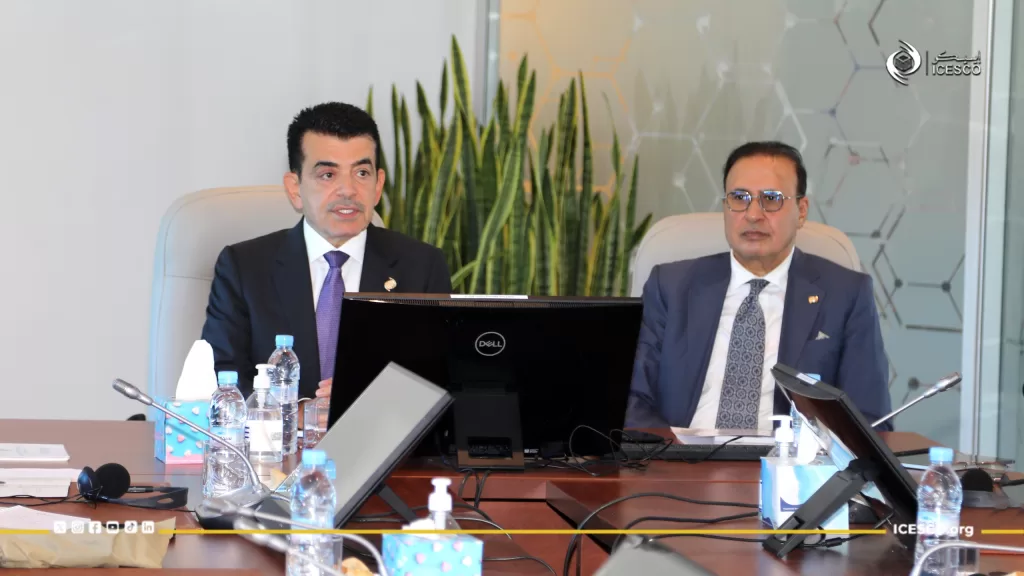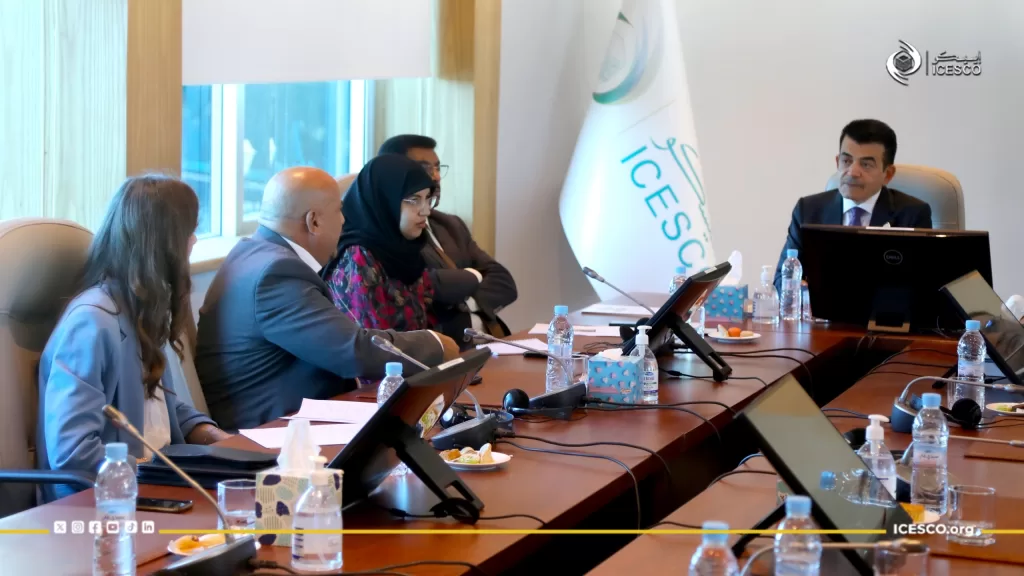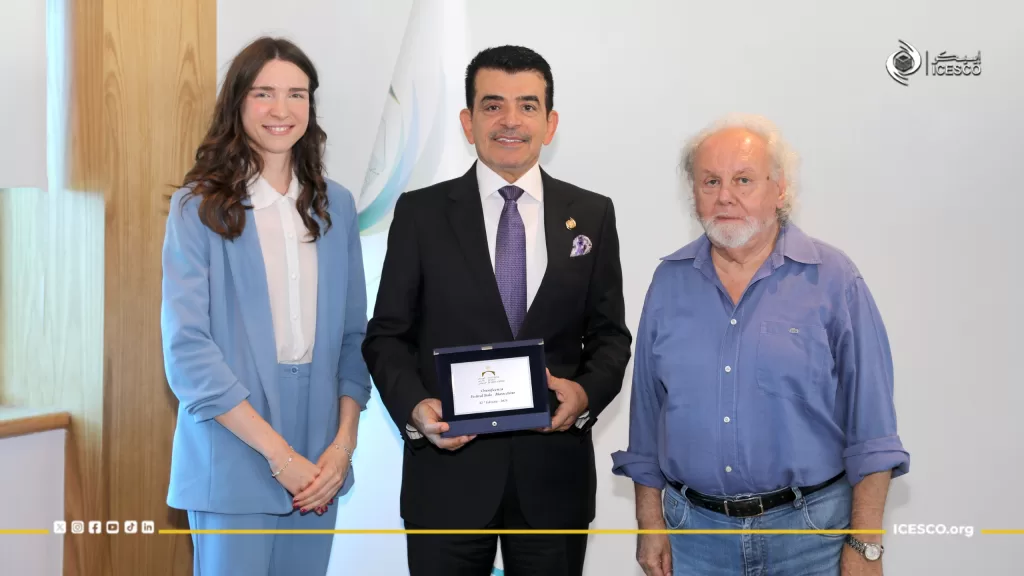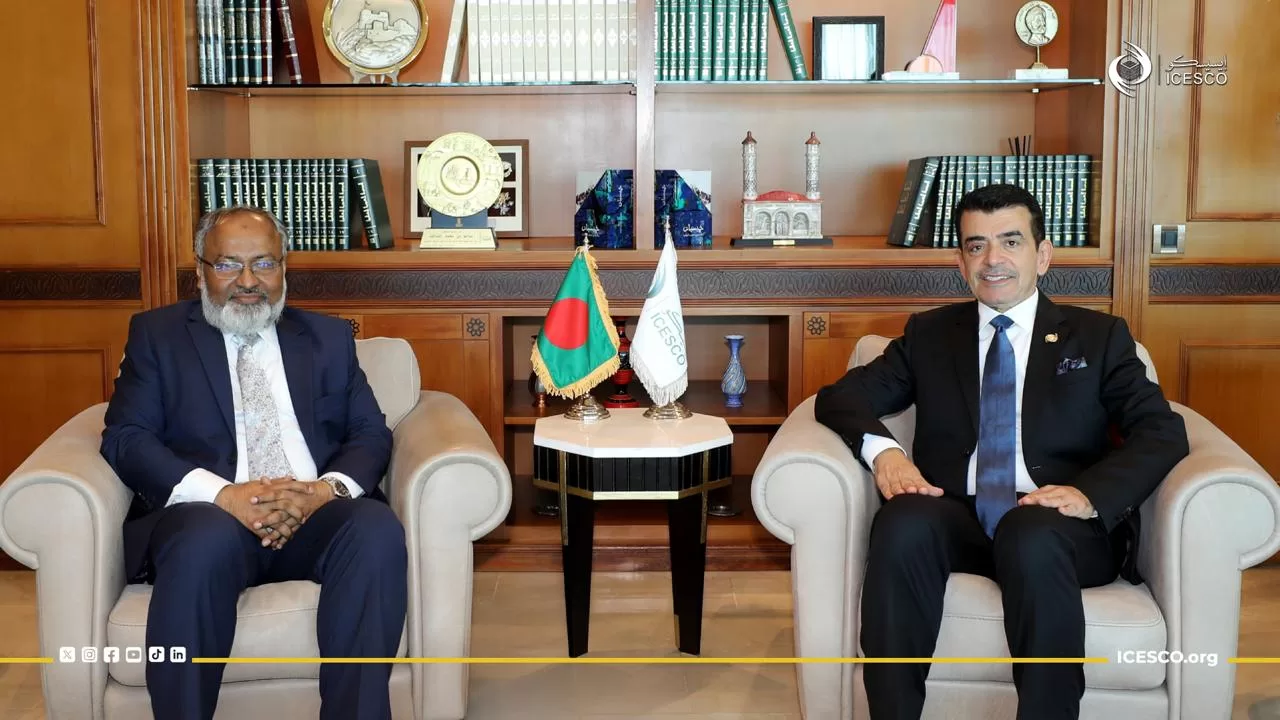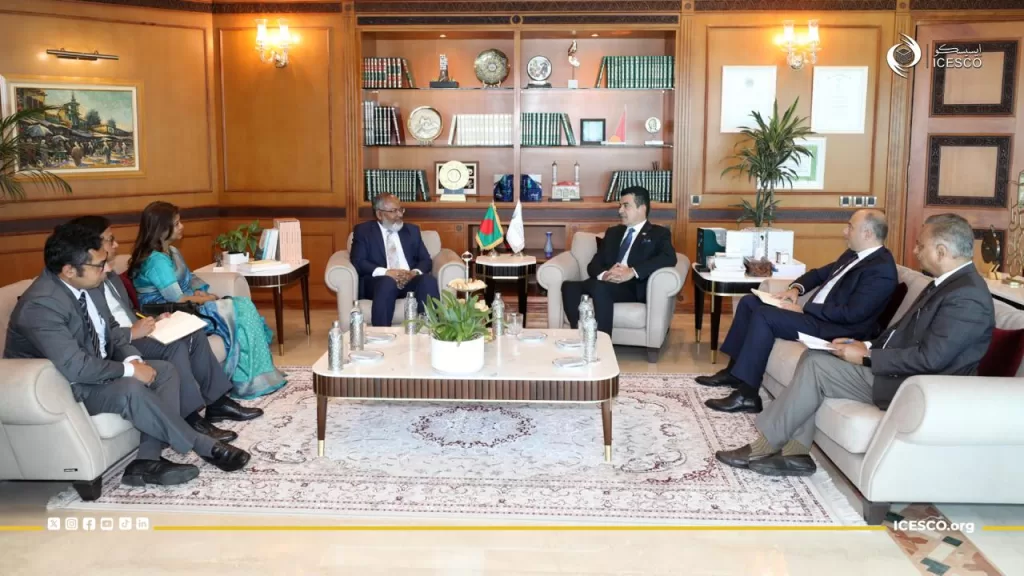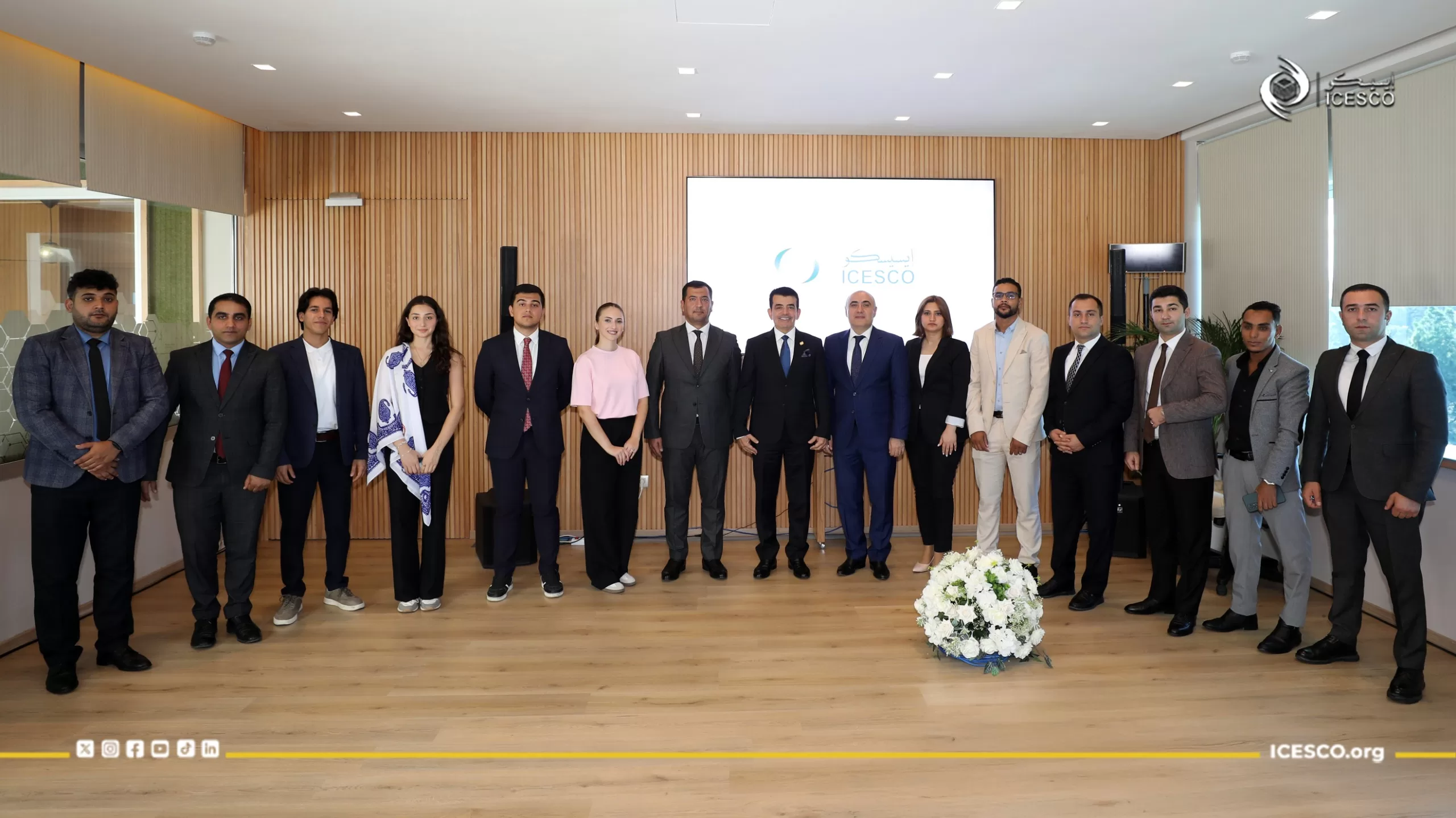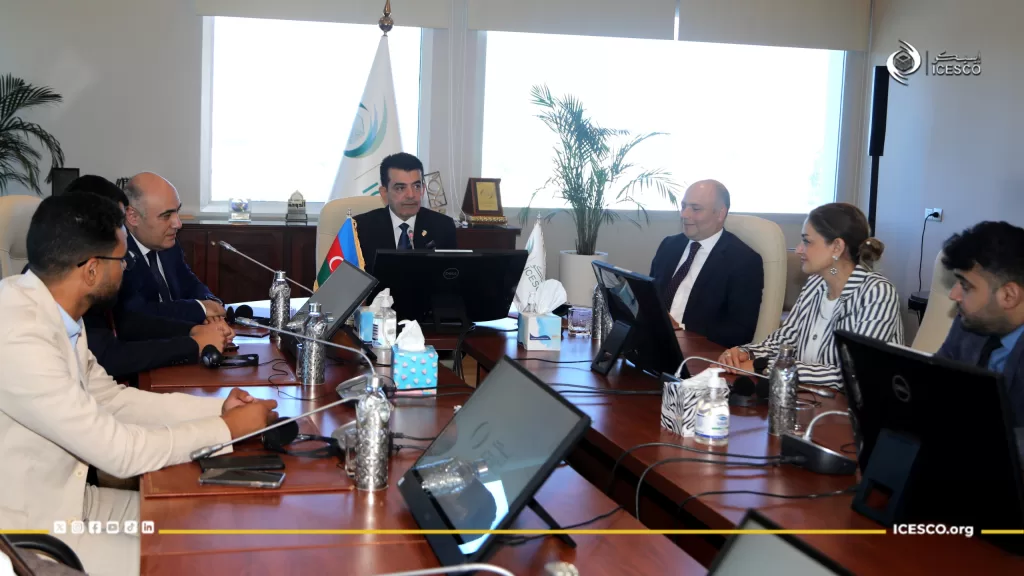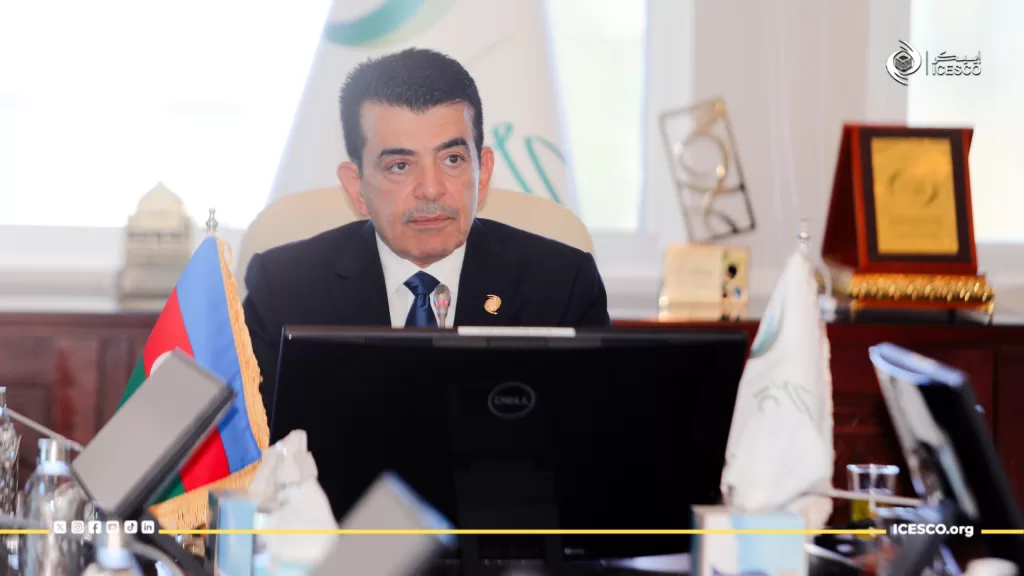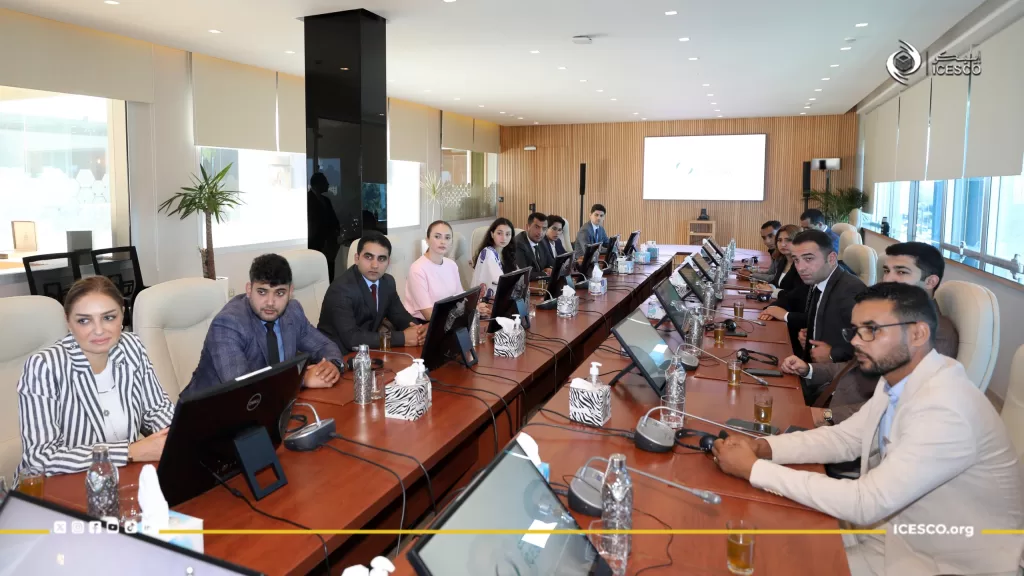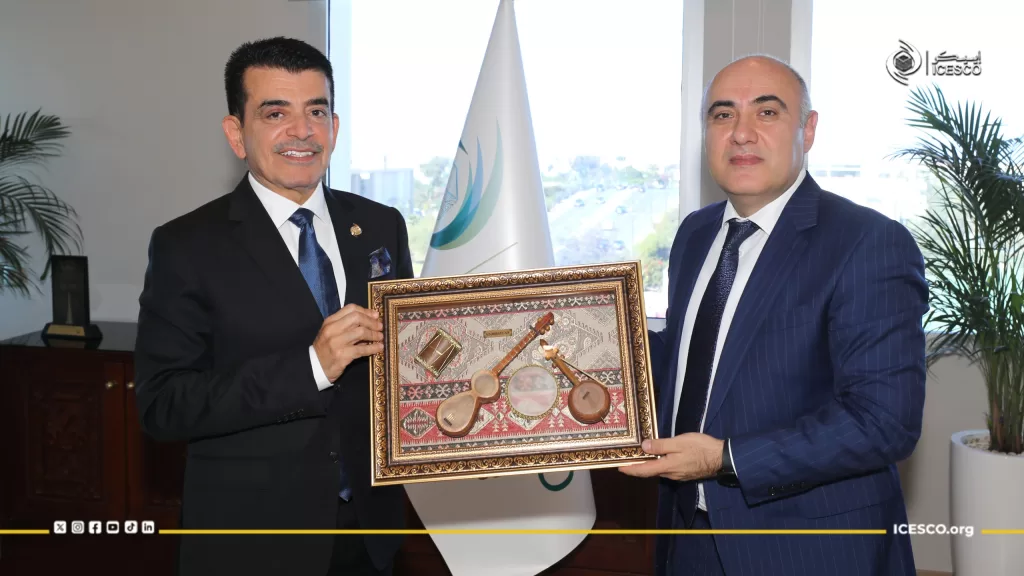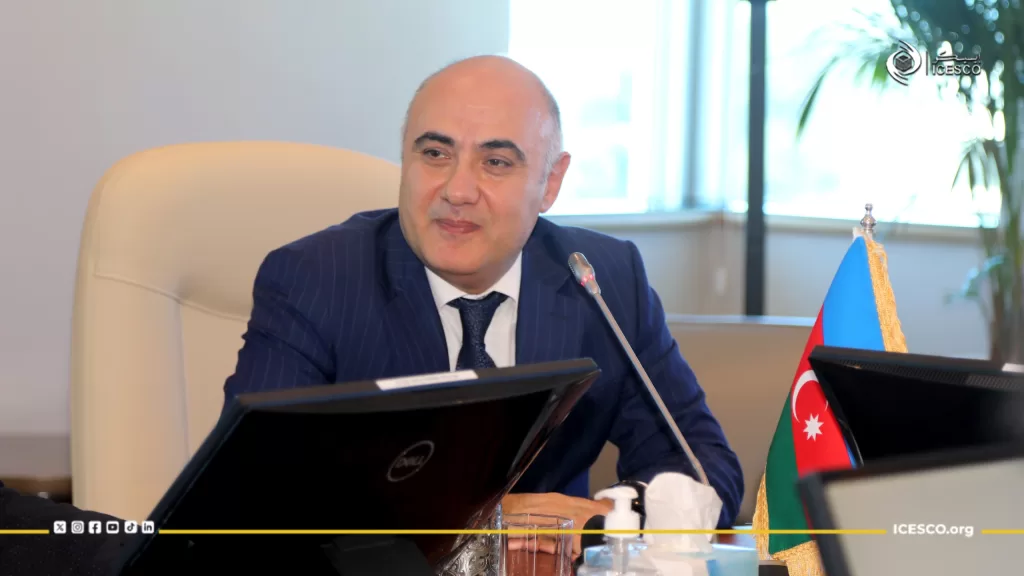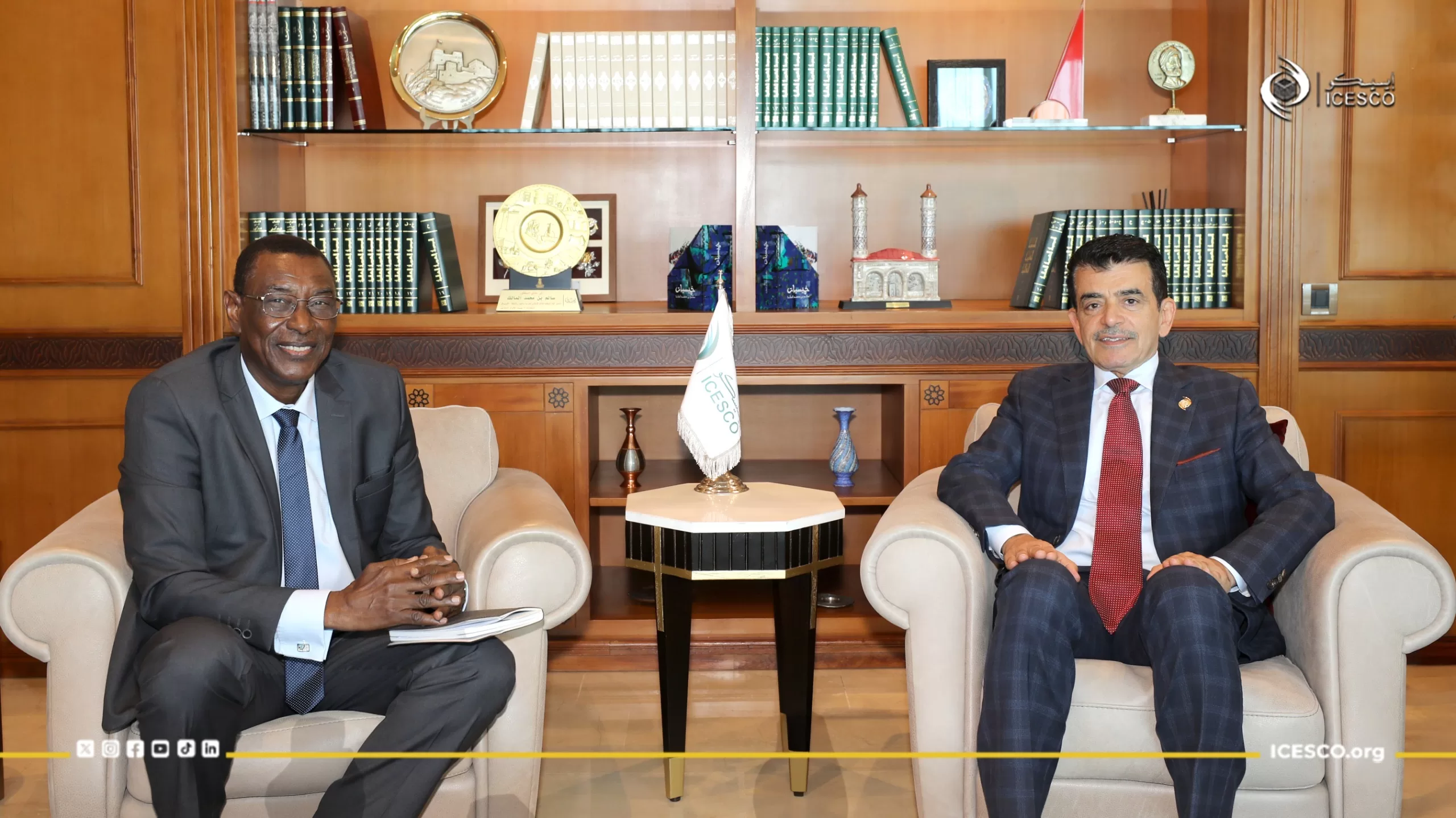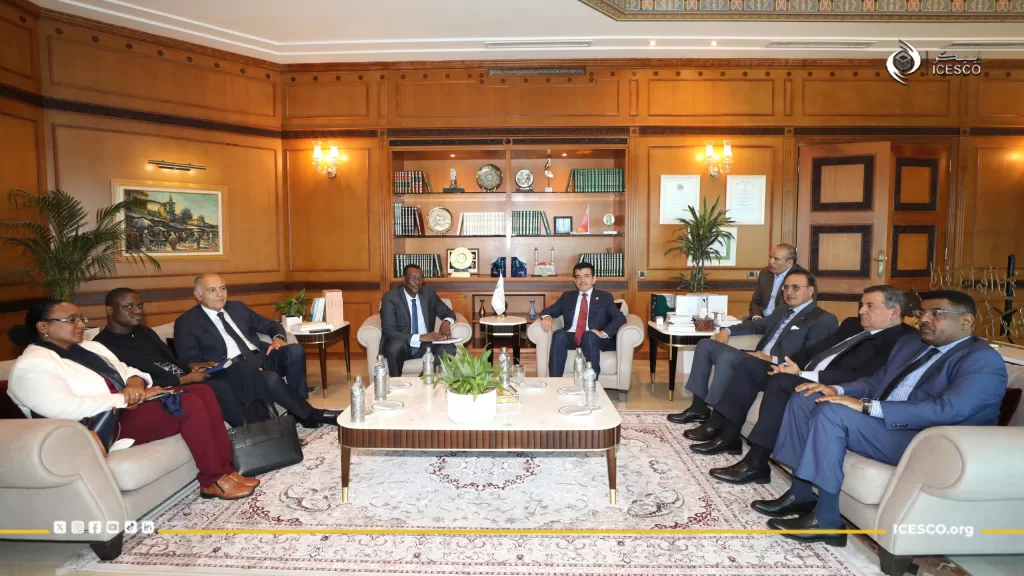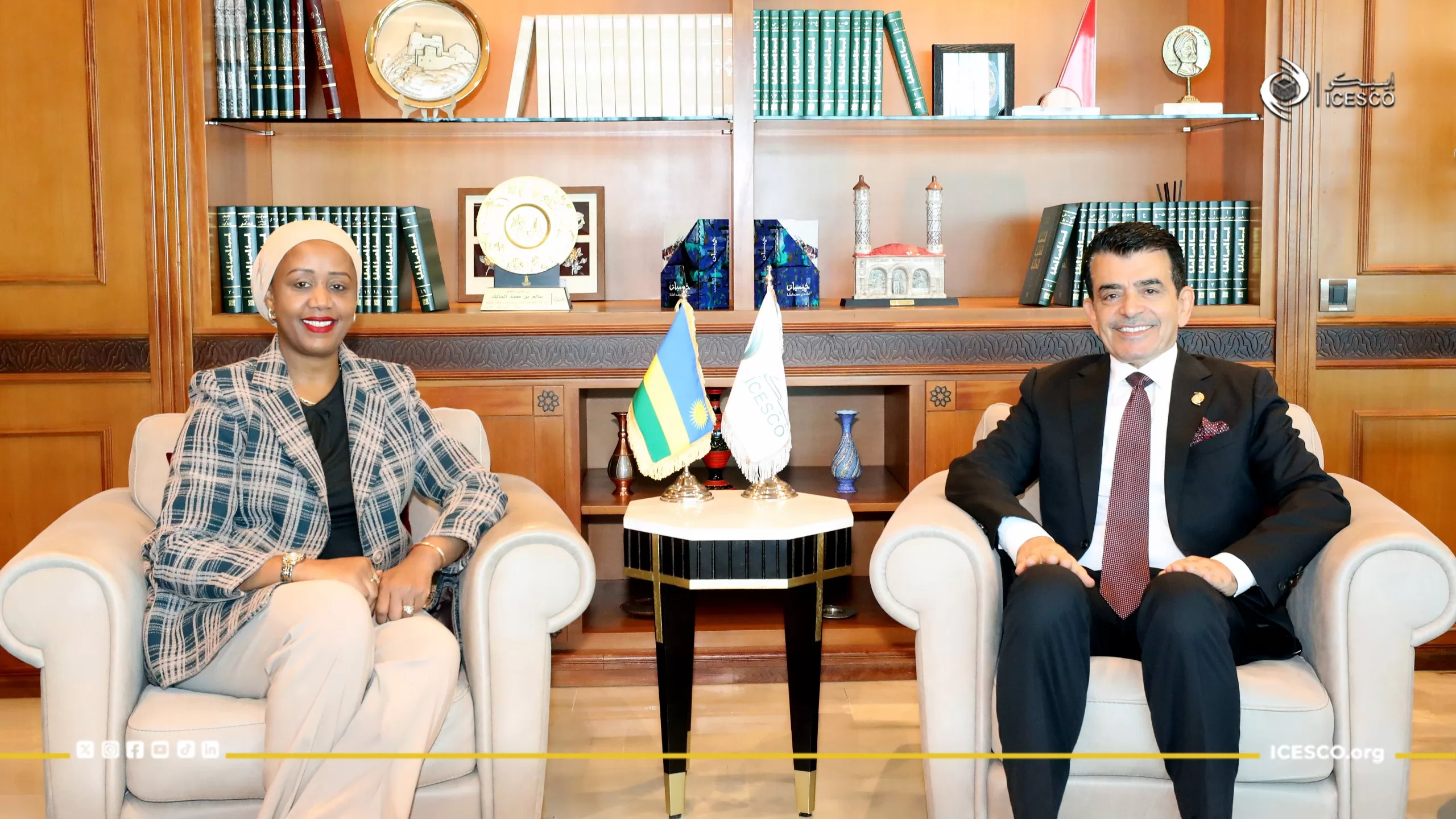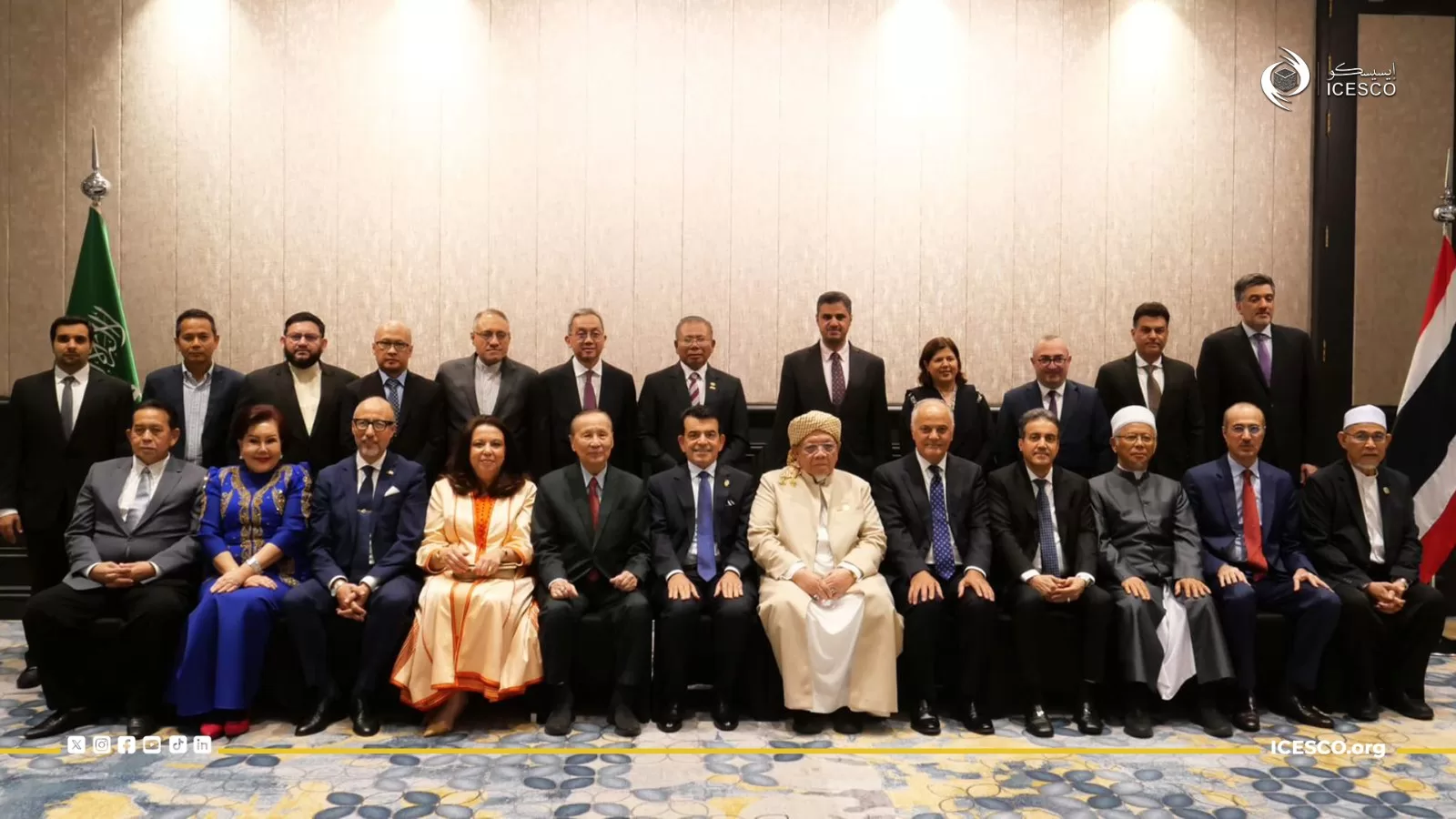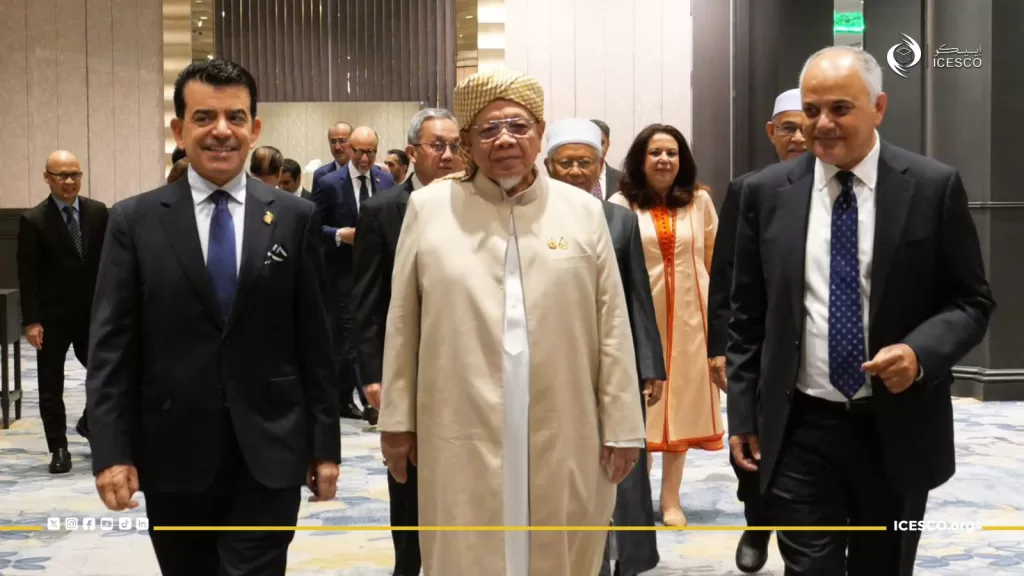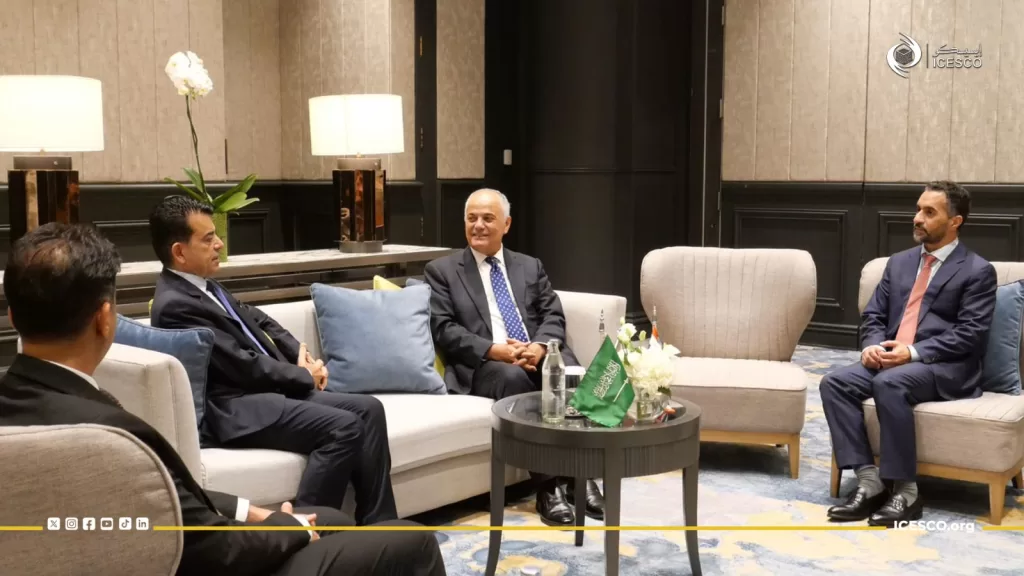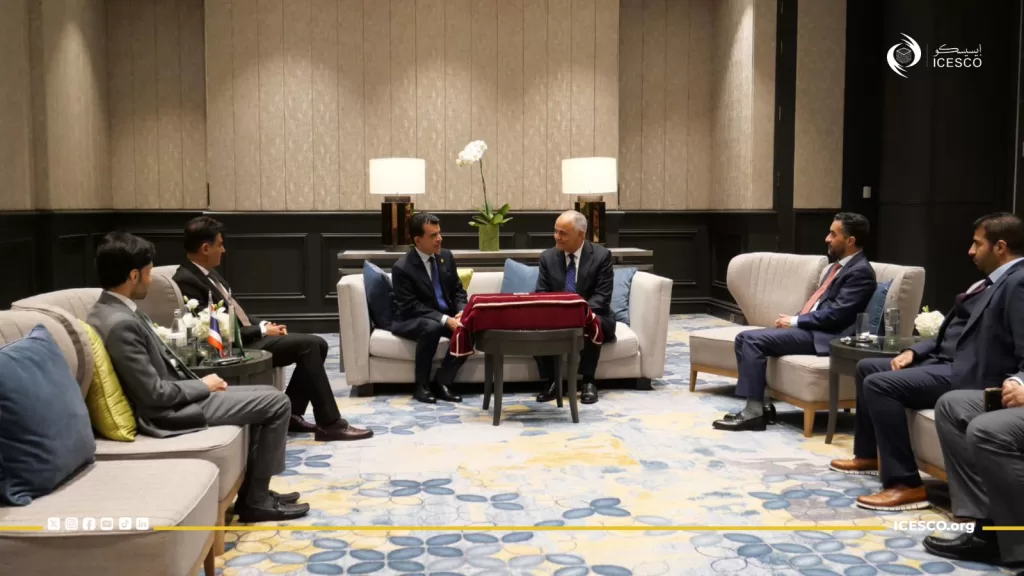The Islamic World Educational, Scientific and Cultural Organization (ICESCO) is taking part with a special pavilion in the Third Edition of the International Children’s and Youth Book Fair 2025 (SILEJ), organized by the Moroccan Ministry of Youth, Culture and Communication in Casablanca, on 8-16 November 2025, under the High Patronage of His Majesty King Mohammed VI, may Allah assist Him.
During the official opening ceremony, held on Saturday morning, 8 November 2025, Dr. Salim M. AlMalik, ICESCO Director-General, received, at the Organization’s pavilion, Mr. Mohamed Mehdi Bensaid, Moroccan Minister of Youth, Culture and Communication, and a delegation of participants in the opening. The Minister toured the ICESCO Pavilion, where he was briefed on its publications and programs designed for children and youth, as well as on the various activities that will take place throughout the Fair.
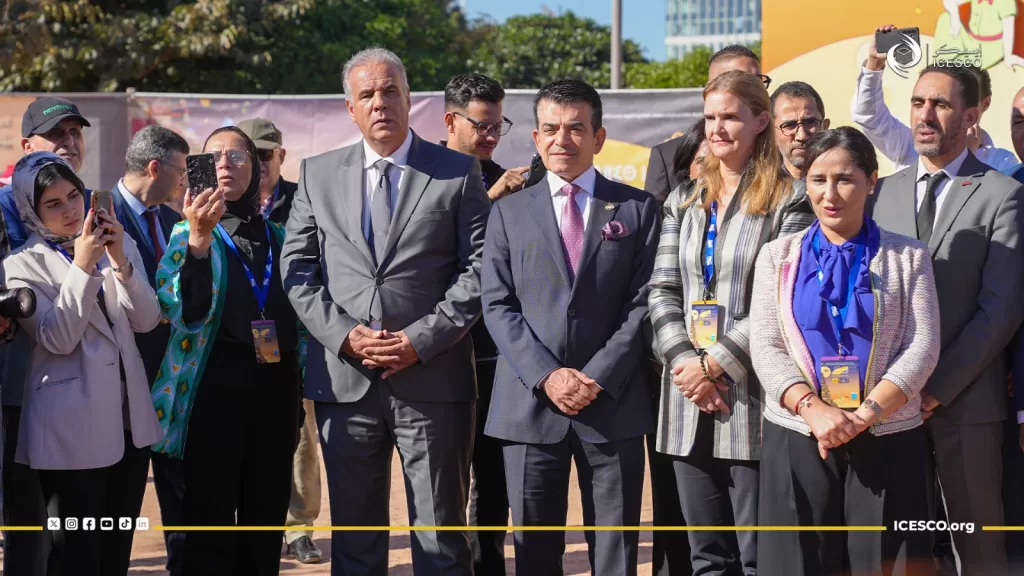
Dr. AlMalik underlined that the Fair is an annual milestone for fostering the habit of reading among younger generations, emphasizing that ICESCO’s participation reflects its commitment to developing innovative educational and teaching content. He also noted that partnerships with national and international institutions enhance the impact of these efforts and expand their reach.
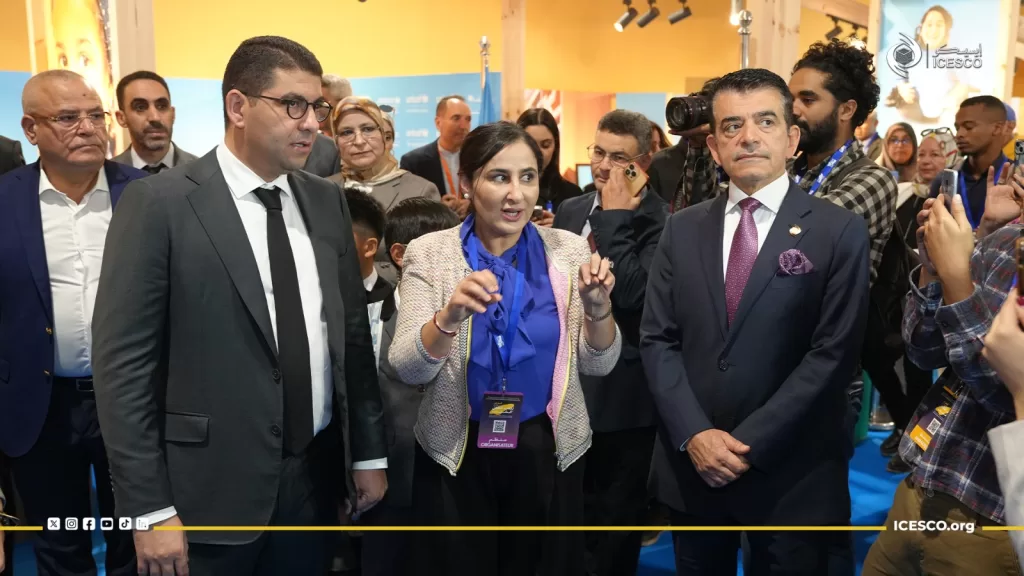
The ICESCO Pavilion will feature a diverse interactive program comprising 33 activities to be held throughout the Fair. These include educational games and art workshops that encourage children and youth to read through modern, engaging approaches that combine fun and learning, while making use of digital tools to promote interaction.
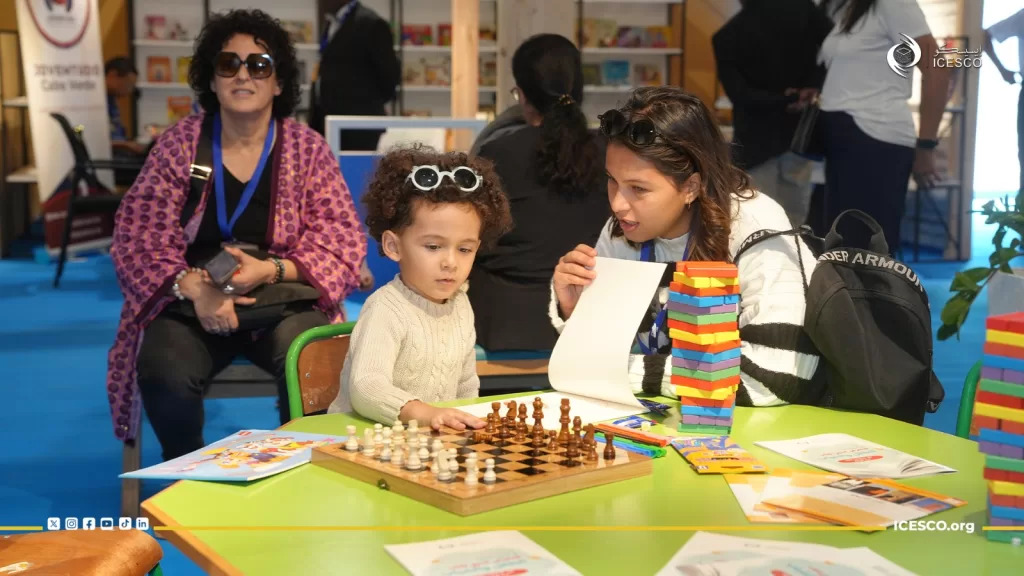
It is worth noting that the United Nations Children’s Fund (UNICEF) is the Guest of Honor of this edition. The Fair also features the participation of national, regional, and international institutions concerned with children’s culture and the promotion of cultural industries targeting young audiences, in addition to expanding equitable access to knowledge.
